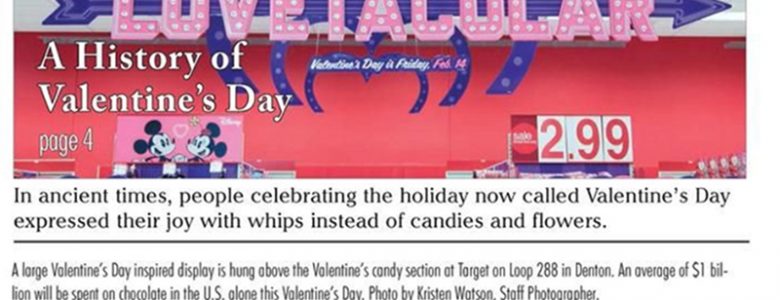Have you ever thought to buy a pack of Valentine’s cards to give out to your friends and loved ones? If you hop into your time machine and set it for January 22, 1866, E. H. Cushing might help you out. Cushing published the Tri-Weekly Telegraph in Houston for a little over a decade, while on the side he ran a wholesale stationery business. Cushing, in this 1866 advertisement, offers Valentine cards sold in lots of $5, $10, or $15. Before you hop in your time machine, be sure you get the correct form of currency, and remember the following conversions:
| Currency in 1866* | Equivalent Value in 2015 |
| $5.00 | $72.45 |
| $10.00 | $144.90 |
| $15.00 | $217.35 |
(*These calculations are based on the Dave Manual 2015 Inflation Calculator, which states $1 in 1866 is equivalent to $14.49 now.)
Unfortunately, E. H. Cushing didn’t specify how many Valentines you’d end up with once you paid $72, $144, or $217, but because his stationery business was wholesale, you’d probably wind up with enough to give to your friends and some left over to sell on EBay as time-travel Valentine cards. (This would help fund the uranium fuel for your time machine.)
As you’re time traveling, it might behoove you to stop next door to visit Galveston, on February 24, 1857, where you will get to observe the peach trees blooming in the approaching spring warmth after a brutal winter. Valentine’s Day for this newspaper editor represented a return to clement weather and easier agriculture. Galveston was booming by 1857, with two weekly and one daily newspaper, and plans for another weekly newspaper, to serve the city.
However you choose to celebrate Valentine’s this year, time time out to research how it’s been celebrated in history!

